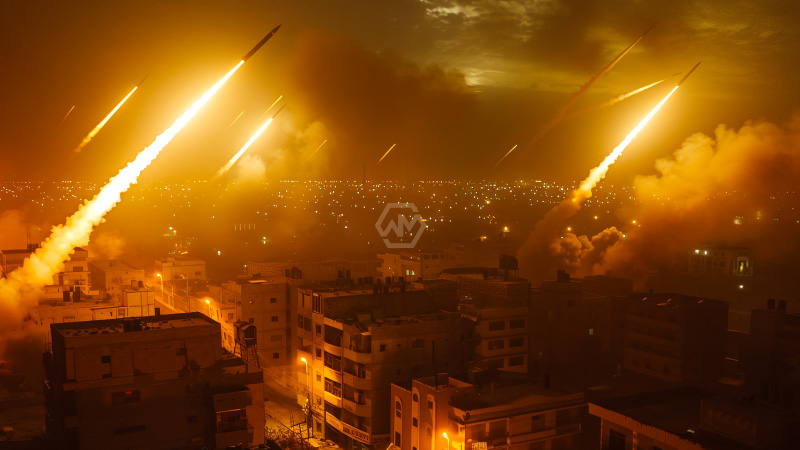- Hezbollah launched drone and rocket attacks on northern Israel in retaliation for the killing of its commander, Fuad Shukr.
- The Israeli military responded by striking Hezbollah facilities in southern Lebanon.
- Rising tensions involve Iran’s vow to avenge the assassination of Hamas leader Ismail Haniyeh in Tehran.
Hezbollah has intensified its conflict with Israel by launching a series of drone and rocket attacks targeting northern Israel. This retaliation follows the killing of Hezbollah commander Fuad Shukr.
The attacks led to injuries near the coastal city of Nahariya and heightened fears of a broader conflict in the region. In response, the Israeli military struck Hezbollah facilities in southern Lebanon.
Heightened Conflict: Hezbollah and Israel Exchange Blows Amid Rising Middle East Tensions
The escalating violence is also influenced by Iran’s pledge to avenge the assassination of Hamas political leader Ismail Haniyeh in Tehran, suspected to be the work of Israel. The involvement of Iran adds another layer of complexity, as US President Joe Biden conducts crisis talks to manage the situation.
This flare-up follows ten months of intermittent skirmishes between Hezbollah and Israel, which have largely been confined to the border area. However, the recent attacks signal a shift towards more aggressive tactics. Civilians in the affected areas have suffered injuries, further inflaming the situation and drawing international attention.
Iran’s involvement intensifies the conflict, especially following the assassination of Hamas leader Ismail Haniyeh in Tehran. Tehran has vowed to punish the aggressors, positioning itself as a key player in the unfolding drama. This has prompted the US to engage in round-the-clock crisis talks, highlighting the potential for a wider regional conflict.
The broader context includes Iran’s support for both Hezbollah and Hamas as part of its “axis of resistance” against Israel. The situation remains volatile, with both sides preparing for possible further escalations. As the Middle East braces for potential fallout, the international community watches closely, concerned about the ramifications of a full-blown war.
The ongoing conflict between Hezbollah and Israel, exacerbated by Iran’s involvement, underscores the fragile and volatile nature of Middle Eastern geopolitics, with significant implications for regional and global stability.
“The response to the assassination of commander Fuad Shukr has not yet come.” – Hezbollah source to Reuters



